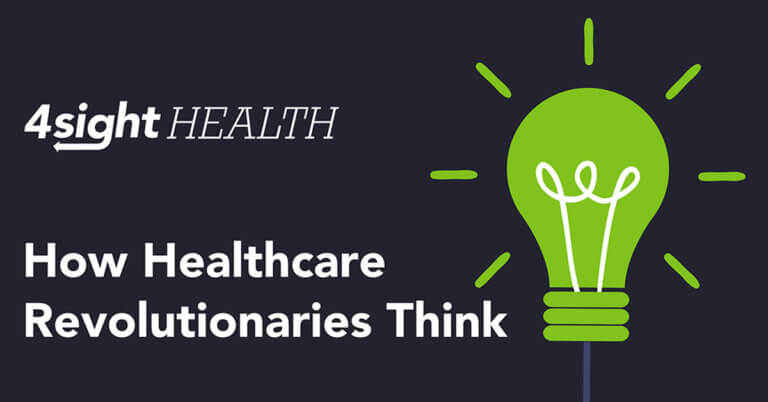April 23, 2019
This Is a Story About Where Healthcare Regulations Come From – Burda on Healthcare

Healthcare is one of the most if not the most regulated industry in the U.S. While its businesses like to blame overzealous bureaucrats for all the red tape, the current debate over surprise medical bills shows that in most cases businesses have only themselves to blame for all the rules that they have to follow.
You probably can trace the story of how surprise medical bills became the target of regulators back to the first time someone with a phony medical degree on their wall gave a patient a handwritten bill for using a candle in a cup to treat their consumption.
But for the purposes of this 4sight Health column, our story begins on Oct. 16, 2017. That’s when Sarah Kliff, a reporter at Vox, published her story “The problem is the prices” and announced the launch of a project to collect and report alarmingly high hospital bills from patients, especially for emergency room visits.
Since then, it’s been all downhill, especially if you’re a hospital or health system CFO. Here’s how we got to where we are today.
- Hospital group gets itchy. On Oct. 20, 2017, the American Hospital Association sent an advisory to its members, warning them about the Vox project and suggesting some things that they can do if one of their bills pops up in a story.
- Sharing the news on social. On Oct. 24, 2017, Bob Herman, a reporter at Axios, shared the AHA media advisory in a tweet on his Twitter feed with his more than 11,000 followers.
- Media attention expands. On Feb. 16, 2018, Kaiser Health News and National Public Radio announced their new Vox-like series called the healthcare “bill of the month club” that features arbitrarily high medical bills submitted by readers.
- Big hospital bill goes national. On Aug. 27, 2018, one of the KHN-NPR features garnered national headlines. Written by then-KHN reporter Chad Terhune, now with Reuters, the piece told the story of a high school history teacher in Texas who got a $108,951.31 bill from St. David’s Medical Center in Austin for the uncovered balance of his bill for a four-day stay following treatment for a heart attack. Following the publicity, the hospital reduced his out-of-pocket bill to just $332.29.
- Enter health services researchers. On Aug. 30, 2018, three days after the Texas story went viral, NORC at the University of Chicago released the results of its survey of 1,002 adults that found that 57 percent had been surprised by a medical bill that they thought was covered but wasn’t.
- Taking the public’s temperature. On Sept. 5, 2018, the Kaiser Family Foundation released the results of a Kaiser Health Tracking Poll that said 67 percent of the survey respondents were “very worried” or “somewhat worried” about being able to afford a surprise medical bill. Thirty-nine percent said they got a surprise medical bill within the past year with 13 percent of those being for $2,000 or more.
- Payers state their principles. On Dec. 10, 2018, a coalition of nine health insurer, employer and consumer groups published four principles to protect patients from surprise medical bills. The coalition included America’s Health Insurance Plans, the Blue Cross Blue Shield Association, Consumers Union, Families USA, the National Business Group on Health and the National Retail Federation. One principle called for regulating payments to out-of-network hospitals and doctors.
- Hospital lobby responds. On Dec. 10, 2018, the AHA and the Federation of American Hospitals issued a statement in response to the four payer principles. The AHA and FAH blamed “inadequate health plan provider networks that limit patient access to emergency care” as one of the “root causes of surprise bills.”
- Consumer advocates turn up heat. On Jan. 22, 2019, Consumer Reports created a “Member Stories: Medical Bills” website where readers can post and read horror stories about surprise medical bills from out-of-network providers. Consumer Reports previously launched an Insurance Complaint Tool that links users to the appropriate agencies in their state to report and resolve surprise medical bills.
- Diagnosis from organized medicine. On Feb. 7, 2019, more than 100 medical specialty and state medical societies led by the American Medical Association (and about 50 other healthcare associations) sent a letter to Congress, listing their seven priorities that they said should be reflected in any federal legislation to protect patients from what they called “unanticipated medical bills.” Clearly, doctors don’t like surprises. Topping the doctors’ list of priorities was “insurer accountability.”
- Think tanks weigh in. On Feb. 19, 2019, the Leonard D. Schaeffer Center for Health Policy & Economics and the Center for Health Policy at Brookings released a 42-page report called State Approaches to Mitigating Surprise Out-of-Network Billing. In it, wonks from the think tanks offered two state regulatory options to protect patients: one, limit out-of-network charges to 125 percent of what Medicare would pay; or two, impose the same limit and prohibit in-network providers from balance billing.
- Hospital lobby releases plan. On Feb. 20, 2019, the AHA, FAH and four other national hospital associations sent a letter to Congress, outlining their criteria for protecting patients from surprise medical bills. They said any federal legislation should ban providers from sending patients a balance bill beyond their cost-sharing obligations under their health plan. At the same time, the government should not create a rate-setting or reimbursement methodology for out-of-network services, and it should let providers and health plans continue to privately negotiate payment rates for medical care.
- Scholarly research publishes. On March 4, 2019, researchers from Wharton published their study, “Consumers’ Responses to Surprise Medical Bills in Elective Situations” in Health Affairs. It found that mothers who got a surprise out-of-network medical bill after delivering their babies were 13 percent more likely to switch to another hospital to deliver their children the next time.
- Physician alliance proposes bill. On Mar. 13, 2019, a physician practice alliance dubbed Physicians for Fair Coverage unveiled draft federal legislation called “The Patient Protections and Transparency Act of 2019.” It would ban providers from balance billing patients for unexpected out-of-network fees and create an alternative dispute resolution system to settle payment disagreements between doctors and insurers when the amount in dispute is more than $750.
- Payer coalition expands. On Mar. 18, 2019, an expanded 17-member payer coalition sent a letter to four Democratic and Republican leaders of the House and Senate, urging them to pass federal legislation largely based on its four principles previously released on December 10, 2018. New members of the group included the National Alliance of Healthcare Purchaser Coalitions, National Association of Health Underwriters and the Pacific Business Group on Health.
- Hospital lobby responds. On Mar. 18, 2019, the AHA and FAH responded to the payer coalition’s letter to Congress, opposing the coalition’s position. In its response, the hospital groups said, “It is essential that insurers and providers of care retain the ability to negotiate appropriate payment rates.” They called it a “dangerous precedent” to let the federal government set the rates for medical care in the private sector.
- Another damning study. On Mar. 28, 2019, the Health Care Cost Institute released the results of its analysis of commercial health insurance claims for more than 600,000 inpatient admissions to in-network hospitals in 2016 in 37 states and the District of Columbia. The HCCI’s analysis found that 14.5 percent of the admissions generated a separate bill from an out-of-network medical professional. The rate varied from a low of 1.7 percent in Minnesota to a high of 26.3 percent in Florida. As we said in a previous 4sight Health blog post, where there’s variation, there’s suspicion. And when there’s suspicion, here comes regulation.
- House subcommittee hears testimony. On Apr. 2, 2019, the House Education and Labor Committee’s health, employment, labor and pensions subcommittee held a hearing, “Examining Surprise Billing: Protecting Patients from Financial Pain.” Five witnesses testified, and you can download their testimony here.
Whew! I hope you’re still with me. And I apologize for not including or missing any important events in this 19-month saga. I don’t know how it ends. But, my best guess is, the feds will punt and a handful of states will pass legislation, creating a crazy quilt of rules and regulations that somehow will favor of the status quo and confuse patients while driving up healthcare costs. Never bet against the house.
Now, the important part and the premise of this column are this:
You can find and replace the phrase “surprise medical bills” in this tale with words like “hospital-acquired conditions” or “medical-loss ratio” or “Physician Payments Sunshine Act” or “pharmacist gag clauses” or “information blocking” or “drug diversion” and the story really doesn’t change all that much.
History teaches us that regulation is born of bad behavior by those who are then subject to regulation. It would follow then that if businesses like hospitals, health systems, physician practices, health insurance companies, drug manufacturers, health IT vendors, medical device companies, suppliers and distributors want less government red tape, they should stop doing things that harm their customers.
Being patient-centered or patient-centric or putting patients first are all clichés at this point. Kind of like athletes saying that they’re just taking it one game at a time at the end of a season with a playoff berth hanging in the balance. But if healthcare businesses really did put patients first or at the center of their business model, there would be less need for regulatory oversight. Try it and see what happens.
Author
David Burda is a columnist for 4sight Health and news editor of 4sight Friday, our weekly newsletter. Follow Burda on Twitter @DavidRBurda and on LinkedIn. Read his bio here





